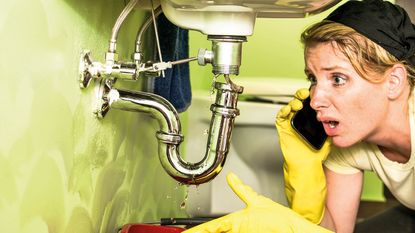Where to find the best insurance deals
If you want a good deal on your home, contents or travel insurance, you will need to do more research in the post-Covid-19 world.


When it is time to renew your insurance policies you may be in for a shock. The pandemic has prompted a rise in premiums for several types of insurance. Here’s how to hunt down the best deals.
“A DIY boom during lockdown has been partly blamed for the price of home insurance increasing by 7% this year, from an average premium of £239.10 to £255.79,” says Jessica Beard in The Daily Telegraph. Aviva noted “a rise in claims for DIY disasters” during the summer.
If your home insurance is due for renewal, shop around using price-comparison sites. And only get the cover you need. For instance, make sure your buildings insurance covers the rebuild value of your home – you can use the calculator on the website of the Association of British Insurers to work this out (you will need to register first) – and not the purchase price, which is usually far more.
Subscribe to MoneyWeek
Subscribe to MoneyWeek today and get your first six magazine issues absolutely FREE

Sign up to Money Morning
Don't miss the latest investment and personal finances news, market analysis, plus money-saving tips with our free twice-daily newsletter
Don't miss the latest investment and personal finances news, market analysis, plus money-saving tips with our free twice-daily newsletter
Contents insurance
As for contents insurance, most people undervalue this, so take the time to be sure you are fully covered for the value of your belongings. You don’t want to find out when it comes to the crunch that the insurance you’ve been paying for won’t cover the full value of your possessions. Improve your home security too. “Insurance is all about risk, so if you can prove you’re a less risky proposition to insurers, you’re likely to unlock cheaper premiums,” says Stephen Maunder of consumers’ group Which. This means making sure you have insurer-approved locks on your doors and windows and deciding whether a burglar alarm would save enough money to justify the installation cost.
If Covid-19 means you are now working from home you should tell your insurer when you renew your home insurance. “While insurers assure me that working from home during the pandemic is not a problem, running your own business from home is,” says Dean Dunham in the Daily Mirror. If you are doing the latter you may need to take out a business insurance policy. Speak to your insurer to find out what you need.
Travel insurance
Travel insurance, unsurprisingly, has soared since lockdown. Premiums for European cover rose by an average of 9% between March and August, says comparethemarket.com. Insuring a trip to America will now cost you 16% more.
To add insult to injury, “many policies do not cover travellers for coronavirus-related cancellations”, says Beard. If you are planning a trip, whether in the UK or abroad, you need travel insurance. Look for a policy that will cover you for all the usual things plus cancellation due to Covid-19 restrictions and protection if you get coronavirus. Several insurers now offer full cover, including Trailfinders, Co-op, and LV.
Anyone seeking a new current account may want to consider Nationwide’s FlexPlus account when shopping for travel insurance. For £13 a month you get worldwide travel insurance up to the age of 70 covering medical expenses due to Covid-19 and cancellation cover if you have been diagnosed with Covid-19. You also get worldwide mobile-phone insurance for you and your family, and UK and European breakdown cover. Note that if the government advises against travel to your destination your travel insurance will be invalidated if you still go on your trip.
Ruth Jackson-Kirby is a freelance personal finance journalist with 17 years’ experience, writing about everything from savings and credit cards to pensions, property and pet insurance.
Ruth started her career at MoneyWeek after graduating with an MA from the University of St Andrews, and she continues to contribute regular articles to our personal finance section. After leaving MoneyWeek she went on to become deputy editor of Moneywise before becoming a freelance journalist.
Ruth writes regularly for national publications including The Sunday Times, The Times, The Mail on Sunday and Good Housekeeping among many other titles both online and offline.
-
 The industry at the heart of global technology
The industry at the heart of global technologyThe semiconductor industry powers key trends such as artificial intelligence, says Rupert Hargreaves
By Rupert Hargreaves Published
-
 What are shareholder voting rights and why do they matter?
What are shareholder voting rights and why do they matter?If you hold shares in a company, the chances are they’ll come with voting rights. But how do you exercise your right to vote? And is your fund manager taking it seriously?
By Katie Williams Published